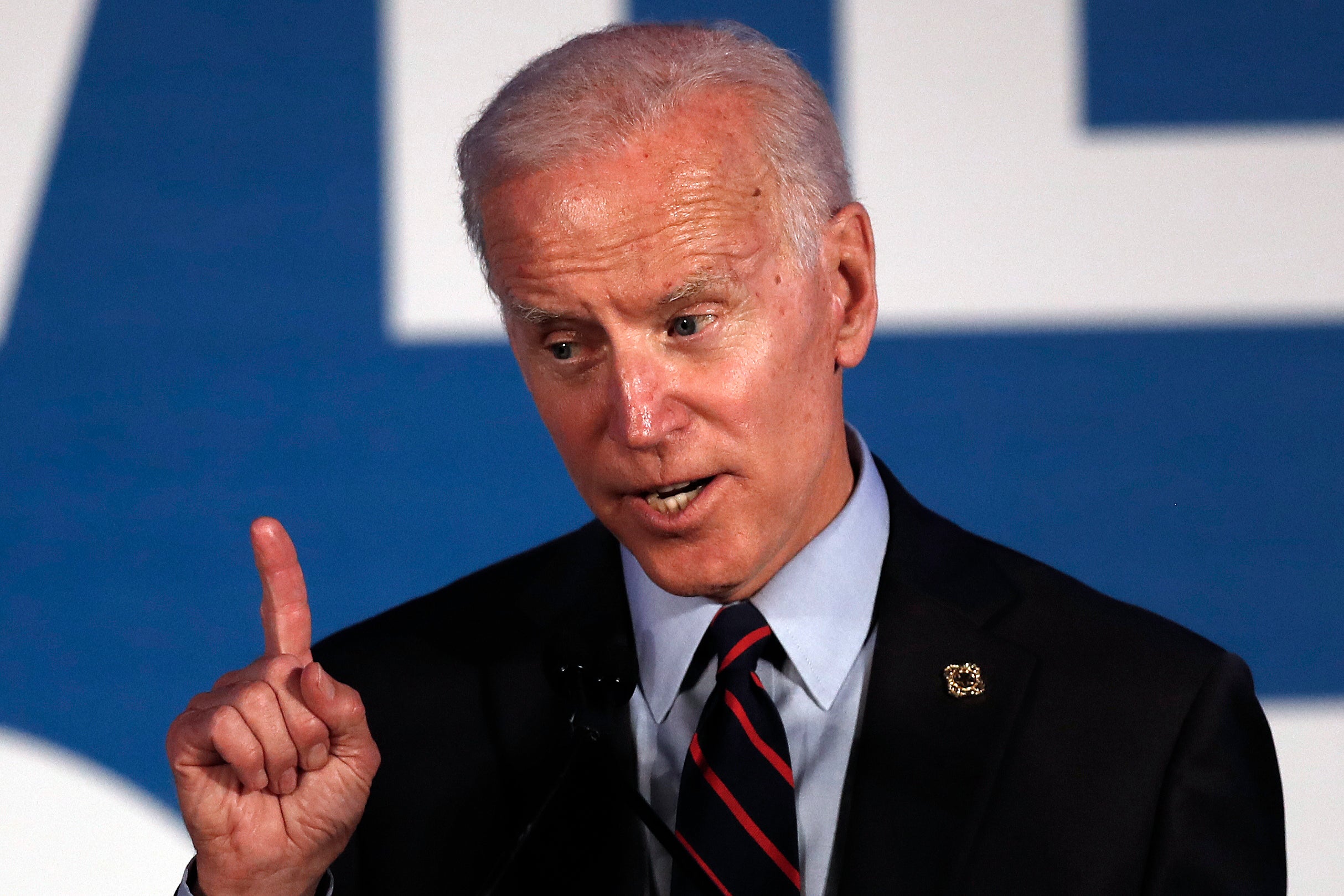Opinion: in defense of Joe Biden’s abortion switcheroo
HL Mencken, the famous crisp commentator, said a century ago: “A politician is an animal who can sit on a fence while keeping both ears on the ground.
I thought about this joke the other day when former Vice President Joe Biden magically declared that he supported federal Medicaid funding for poor women seeking abortions. Biden had been firmly opposed to such funding for decades – and reaffirmed his opposition as late as last Wednesday. But then on Thursday he suddenly announced his support because, in his words, “the circumstances had changed”.
You bet they had.
Biden is a prominent presidential candidate, and even though polls show him beating Donald Trump by higher margins than his Democratic rivals, he still has to water liberals who think he’s too moderate. old. Most urgently, he needed last week to synchronize with a party base that supports access to abortion for all women regardless of their income – especially now, with Roe vs. Wade attacked like never before. So, in response, Biden made the decision to quickly turn around on federal Medicaid funding. All Democratic presidential candidates since 1992 have supported this funding.
In recent days, longtime liberal activists and pundits hostile to Biden have been quick to pounce on him, describing his policy reversal as a sign of weakness, proof that he is lacking in principle. Rather, I suggest that we remember what HL Mencken said. I will defend Biden here, not as a Biden supporter (I have no position on his candidacy and, unlike most of his Democratic critics, I don’t favor any other candidate at this point), but as longtime observant politician who believes in the benefits of perspective.
Seriously, guys. Virtually all politicians – in fact, often the top performers – have a habit of being flexible from time to time, recalibrating their views for reasons of political expediency or urgent circumstances.
Some of our biggest flip flops are honored on monuments. Thomas Jefferson hated public debt so much that he called for a constitutional provision that would strip the government of its power to borrow money. Then, as president, he overturned. He bought the Louisiana territory from France with borrowed money, and justified it by saying, “Isn’t it better that the opposite land of Mississippi be colonized by our own brothers and children than by strangers from another family?
Abraham Lincoln campaigned for the presidency and marked his inauguration in 1861 by promising that federal authorities would not force existing slave states to release their assets. He first defended “the right of each state to order and control its own national institutions according to its own judgment exclusively”. We know what happened to this promise.
One of the most notorious rockers was Franklin D. Roosevelt, known at the time as a chameleon without particular conviction. He fell for the White House in 1932 by promising fiscal conservatism and a balanced budget; after winning, he started the New Deal. He often moved to the left only when liberal activists (including the First Lady) urged him to do so. Frances Perkins, a member of his cabinet, said FDR was guided by “his feeling that nothing in human judgment is final. We can courageously take the step that seems right today because it can be changed tomorrow.
More recently, Barack Obama returned to same-sex marriage. He had opposed it as a senatorial and presidential candidate, but as president he endorsed it and explained his change of mind: “Mentalities are changing, including mine. In fact, Obama – the only Democrat since FDR to be elected twice with a majority of the votes – has seen a series of reversals. He promised as a candidate to close Guantanamo Bay prison, but as president he kept it open. He swore as a candidate that he would not appoint lobbyists to help run his administration, but he did. He campaigned against extending Bush’s tax cuts that favored the rich, but then signed legislation extending the cuts. He said early in his term that secret campaign donations were “a threat to democracy,” but his candidacy for re-election in ’12 was door by Democratic groups who took secret donations.
But John Kenneth Galbraith, the renowned economist who served four presidents, once said that the best CEOs usually make “pragmatic accommodations to whatever needs to be done.” Democratic critics of Joe Biden predictably condemn his reversal of federal abortion funding in an attempt to lower his ranking in the polls (much to Team Trump’s delight, as they would like to present against someone else), calling his pragmatism rank opportunism, but one can easily take this episode as proof that he is willing to be flexible, that he is sensitive to the views of his constituents .
And isn’t that what we expect from a politician?

